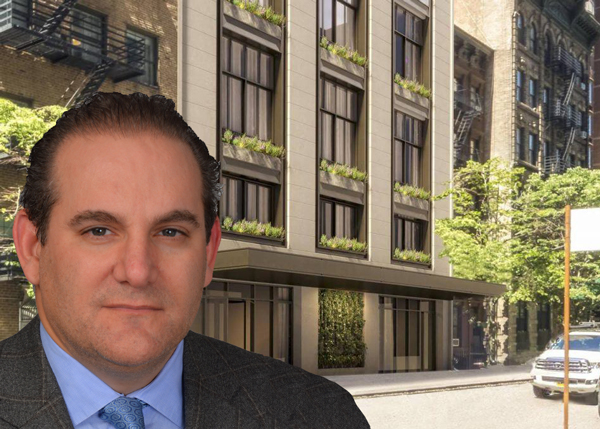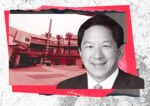Trending
Group alleges Gamma wrongfully rushed foundation work at Sutton Place tower
Issue heads to city's Board of Standards and Appeals

When a “conga line” of cement trucks made their way down East 58th Street to complete a foundation for an 800-foot-tall condo tower, the project’s developer didn’t have a permit to close down the thoroughfare, a group of neighbors opposed to the project claims.
Next week Gamma Real Estate will argue before the city’s Board of Standards and Appeals that its project — Sutton 58 — shouldn’t be subject to a rezoning that impacts 10 blocks on the Upper East Side. Crucial to the developer’s argument will be the fact that a majority of the tower’s foundation was completed at the time the rezoning was approved in November — a notion that the East River 50s Alliance challenges.
ERFA, the nonprofit group that launched the rezoning effort, alleges that more than 2,000 cubic yards of concrete was illegally poured at Gamma’s 428-432 East 58th Street. In a letter to the BSA, the organization claims the developer didn’t have the proper permits to close down 58th Street on three dates in November, which allowed a brigade of cement trucks to pour concrete at the site “nonstop.” ERFA also claims that some foundation work was done beyond when after-hours work was authorized by the Department of Buildings and after the City Council approved the rezoning.
DOB records show the project’s general contractor, Lendlease, secured several after-hours work permits at the site, including three after the City Council’s decision to allow for debris clean up. A representative for the city’s Department of Transportation told The Real Deal that Lendlease received initial approval for the road closure but never applied for the full work permit.
Representatives for Lendlease declined to discuss the group’s claims. Calls to Gamma weren’t returned.
“Their letter is based on fiction and doesn’t reflect the facts,” said Jay Neveloff, a partner at Kramer Levin, the firm representing Gamma. He declined to go into further detail. “It’s a nice try by a group showing desperation, but we’re not doing this in the press.”
He noted that his firm will be filing its own letter with the board on Monday.
Under city law, a project can potentially elude new rezoning laws if excavation is complete and there is “substantial progress made on the foundations.” When the City Council approved the changes — which require properties in the area to adhere to “tower on a base” standards — Gamma president Jonathan Kalikow said the tower’s foundation was roughly two weeks away from completion. ERFA alleges that the foundation was only 89 percent complete because Gamma unlawfully rushed to complete the job.
Robert Shepler, ERFA co-chairman, said the City Council already opted not to grandfather Gamma’s project, having removed a clause that the City Planning Commission added. He also argued that rezoned area was an anomaly among residential districts in the city, being that it didn’t have mid-block zoning restrictions.
“This developer was taking advantage of an historical accident,” Shepler said. “He was acting in such great haste and did so wrongfully.”
Shepler said efforts to rezone the area started before Gamma took control of the property from Joseph Beninati’s Bauhouse Group in December 2016, so the developer knew the risk of moving forward with a high-rise condo tower. Kalikow has maintained that the rezoning is driven purely by residents of the Sovereign, a post-war co-op building next door to the construction site, because they feared his project would block their views.
Under the rezoning, buildings in the area face new height restrictions. Specifically, 45 to 50 percent of the building must be built below 150 feet. Bauhouse had planned a nearly 1,000-foot tower for the site. Gamma seeks to build an 800-foot building.




